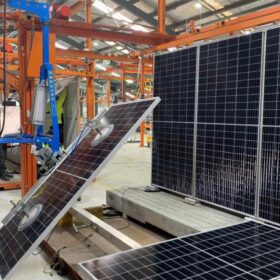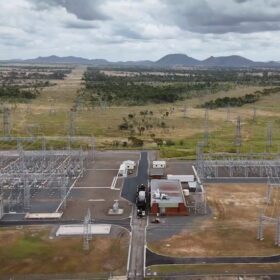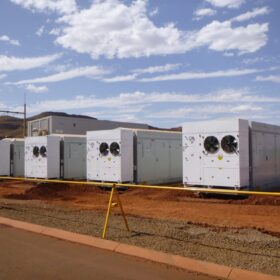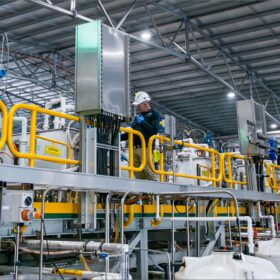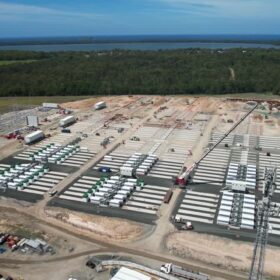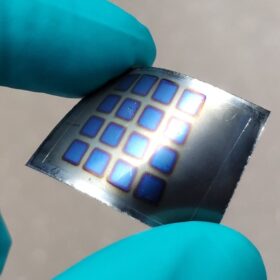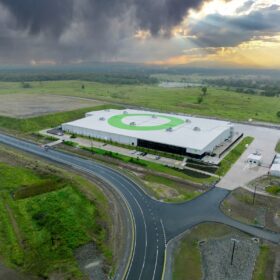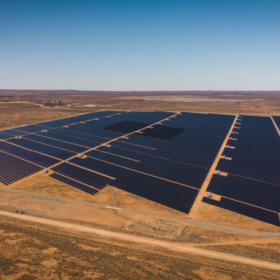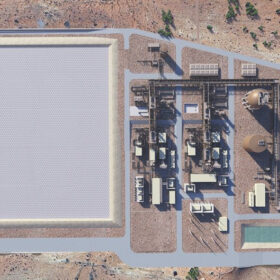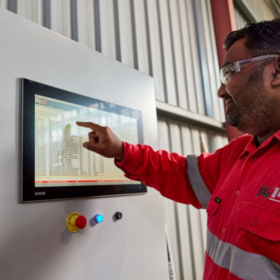New report tips 60,000 jobs from Australian solar manufacturing industry
Building a domestic solar panel manufacturing industry based on Australian innovation could generate up to 60,000 jobs and help cement the nation’s future as a renewable energy superpower but access to capital and focused policies are essential if manufacturers are to reach scale where they can be cost competitive internationally.
Powerlink delivers infrastructure to unlock 2 GW REZ
Queensland government-owned network operator Powerlink has completed construction work on the transmission infrastructure that will pave the way for more than 2 GW of renewable energy assets in the state’s southeast to connect to the National Electricity Market.
GenusPlus tapped for Pilbara transmission project
Fortescue has awarded energy infrastructure provider GenusPlus Group two contracts worth a combined $50 million to deliver transmission infrastructure as the mining giant works to decarbonise its iron ore operations in Western Australia.
Alpha targets lithium-ion battery safety with high-purity alumina
Queensland aluminium materials manufacturer Alpha HPA says it is on the brink of transforming lithium-ion battery safety, declaring its high-purity aluminium nitrate is capable of providing a solution to lithium-ion battery fires.
Waratah Super Battery gets grid green light from AEMO
The first in a series of gigawatt-class battery energy storage projects set to be rolled out across the National Electricity Market is on track to be fully operational by August 2025 after Australia’s market operator granted the technical green light for the Waratah Super Battery.
Australian researchers achieve record-breaking efficiency with perovskite-CIGS tandem PV cell
A team of scientists in Australia claim to have achieved the highest efficiency reported to date for a perovskite-CIGS tandem solar cell built on a flexible steel substrate. In the proposed cell configuration, steel can act as both a substrate and an electrode.
Fortescue opens doors on 2 GW electrolyser factory
Fortescue has officially opened its 2 GW hydrogen electrolyser manufacturing facility Gladstone and followed that by confirming plans to establish a 50 MW green hydrogen production plant at the central Queensland coast site.
Lawler talks of ray of sunshine for idle NT solar farms
Three sleeping solar farm beauties in the Top End may receive the kiss of life with Northern Territory Chief Minister Eva Lawler indicating the government could buy them from their owner, but questions remain about grid stability.
Weekend read: Cut to the CAES
Compressed air energy storage (CAES) sits at a crossroads. It is considered a mature form of deep storage due to its components being firmly “de-risked” but few projects are operating in the Western world. A project in the remote New South Wales town of Broken Hill promises to lead the way.
Hot results for industrial energy storage testing phase
South Australian energy storage specialist 1414 Degrees will move its SiBox thermal energy storage technology to market after 12 months of testing proved the molten silicon tech is reliable, safe, and an adaptable energy storage solution.
